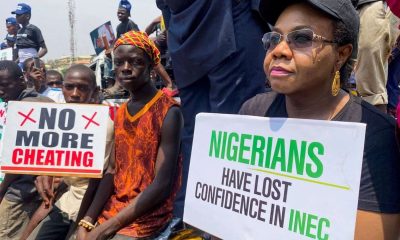FIFA is already coming under pressure to ensure that, whatever its decision over an expansion of the 2022 World Cup, human rights concerns will be observed if more Gulf nations assist host Qatar.
Amnesty International, which was among the leading campaigners over construction workers’ rights and conditions, is one of the signatories of an open letter to Gianni Infantino, president of the world football federation.
A feasibility study about the expansion issue identified five neighbouring states as potential cohosts: Bahrain, Kuwait, Oman, Saudi Arabia and United Arab Emirates.
Bahrain, Saudi Arabia and the United Arab Emirates have all been the recent subject of negative headlines in the worldwide media over human rights issues.
A significant factor is that FIFA has significantly upgraded its own human rights standards in event bidding documentation since the award of the 2022 finals to Qatar back in December 2010.
FIFA Council meets in Miami on Friday with the expansion and extension issues on the agenda for decisions and possible recommendations for rubber-stamping by congress in Paris in June.
The letter to Infantino from Amnesty International, Football Supporters Europe (FSE), Gulf Centre for Human Rights (GCHR), Human Rights Watch, International Trade Union Confederation (ITUC), Transparency International and UNI Global Union World Players Association, reads as below:
Given the possibility that an enlarged 2022 World Cup could potentially require additional countries to host the tournament, we remind FIFA of the commitment it has made to enshrine human rights, transparency and sustainability criteria in its World Cup hosting and bidding process – something we welcomed in 2017, in addition to the adoption of FIFA’s Human Rights Policy.
As such, we call on you to publicly confirm that any assessments of potential co-hosts for 2022 would follow a process that includes these criteria, similar to that approved for the 2026 World Cup.
This would include, amongst other things, the same requirement for any potential co-host to provide “guarantees of compliance with international human rights and labour standards from the government and host cities… as well as from the entities responsible for the construction and renovation of stadiums, training sites, hotels and airport.”
Such an approach is necessary to meet FIFA’s commitments in its own Statutes and Human Rights Policy as well as its corporate responsibility to respect human rights as elaborated in the UN Guiding Principles on Business & Human Rights.
In applying the hosting and bidding criteria, FIFA must ensure that it identifies and assesses the specific human rights risks of each potential host country, including whether or not they can be prevented or mitigated, and obliges potential hosts to develop a corrective action plan under FIFA’s leadership.
With respect to additional hosts in the Gulf region, specific human rights risks relevant to the hosting of the World Cup that FIFA must consider include exploitative labour systems that make migrant workers vulnerable to abuse; discrimination based on gender, sexual orientation and religion; as well as restrictions on the rights to freedom of peaceful assembly, association and expression, and threats to human rights defenders.
We believe that the application of FIFA’s Human Rights Policy and its bidding and hosting criteria have the potential to play an important role in preventing and mitigating human rights abuses and violations in connection with one of the world’s biggest sporting events.

 Health1 week ago
Health1 week ago
 Business1 week ago
Business1 week ago
 Latest1 week ago
Latest1 week ago
 Football7 days ago
Football7 days ago
 Health6 days ago
Health6 days ago
 Latest1 week ago
Latest1 week ago
 Crime6 days ago
Crime6 days ago
 Latest1 week ago
Latest1 week ago

